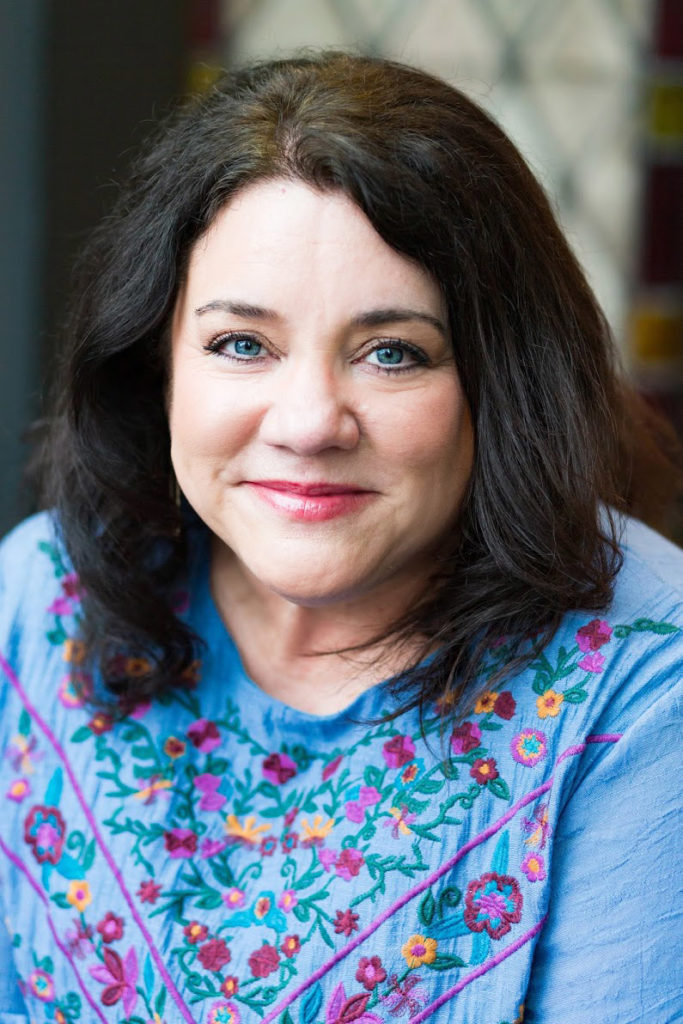My grandparents kept one of those big family Bibles on the coffee table, and it was the first place we looked to learn about our family history. One day, as my cousins and I were looking at the Bible and making fun of some of the names, we came across one we didn’t recognize. We then made connections and found out my grandparents had another son who died of pneumonia at about fifteen months old. Our parents had never told us anything about this loss.
We worked up the nerve to ask my grandmother, and she only said, “Yes, he died as a baby.” I could still hear the sorrow in her voice. Later, I found out my other grandmother had delivered a stillborn child, but she never talked about him. When my doctor said I would likely have a miscarriage with my second child, in the weeks and months that followed, I wished my grandmothers were still alive so I could call them and have someone to talk to. I needed someone to understand all that I was thinking and feeling.
The death of a child is a terrible loss for which no parent can ever prepare. Sadly, this type of loss is not rare. One in four women will lose a baby during pregnancy, delivery, or infancy.1 One in four. And that does not even count the other parents who lose children later in life. The thought of it causes my heart to sink with a weight I cannot describe.
Throughout your life, you will likely find yourself in a position where you will need to support a grieving parent. The grief of surviving parents is similar to other losses, but it can be intense and last longer. Does anyone really ever stop grieving the loss of a child? It is a wound that leaves a mark on your life.
Here are some things I learned through my miscarriage that may help you or someone you are wanting to comfort who has experienced a miscarriage, stillborn, or infancy loss.
- The pain is real. Please don’t act like nothing happened. Talk about the unborn child or infant that was lost so soon. It seems that miscarriages are often overlooked as if the child did not exist. There is a physical pain that comes with grief, a weight in the chest, a grief of the heart. But there is also the physical and emotional pain when you have carried a baby that will never be. Your body is in what I would call a physical shock as hormones change unexpectedly and often uncontrollably. As a friend, talk to the parents who are grieving and acknowledge the child. At the same time, give space as needed. If the parent is not comfortable at times talking about the loss, don’t press her. Everyone grieves on her own terms, but no one will just get over a miscarriage or the loss of an infant child and return to normal activities.
- Be present. Sometimes women might blame themselves or be angry over the situation. She may say things that sound irrational, but it is the grief talking. Regardless of how she processes the pain, please don’t disappear. She needs your support through the anger, sadness, silence, and change. Think about it: What if she has the nursery ready, has baby clothes and small toys, but then there is no baby? How can you be present and help her walk through this very painful season? Often what she needs most is someone who will listen. Truly listen. Don’t share other people’s experiences or even your own experience. It is not helpful to grieving parents to make comparisons. Let her talk. And don’t forget about the father, he is grieving too. He may not have all the physical signs of losing a child, but he feels the loss.
- Ask good questions that allow the parents to have healthy grief.
- What did you name your child?
- What were your hopes and dreams for this child?
- How can I help you and your family? Can I watch your other children, run errands, or give you time alone to grieve?
- How will you remember this child?
- How can I pray for you?
- How are you doing physically, emotionally, mentally, and spiritually?
- Guide your friend to get additional biblical counsel or a support group if needed. Remind her that grief is a slow process. There is no shame in admitting that the grief and loss is overwhelming and seeking professional help. Encourage her to get the help she needs. There are some great resources available—I’d love for any of you to share resources that helped you through your loss of miscarriage, stillbirth, or infant loss. (Just put those resources in the comments.)
One of the best illustrations I found was on Twitter by Lauren Herschel. Her doctor gave her this example of how grief is felt by many people. It might be the example someone needs to hear to work through her grief and loss.
Imagine your life is a box, and the grief you feel is a ball inside of the box. Also inside the box is a pain button. That big ball of grief is so big in the beginning. The grief is overwhelming and large, and every time you move, the grief ball hits the pain button. As each day passes, the grief ball remains present, but it rattles around, hitting the pain button at random times. This is how so many people experience any loss but especially the loss of a child. They see someone with a new baby or even an older child, and the grief ball hits the pain button again, triggering emotions unexpectedly. Over time, the big ball of grief starts to shrink on its own, but it never goes away.2
I still think about the child I lost to miscarriage every year on the expected due date after over twenty years. When the pain button is hit, it still delivers the sorrow of loss again. Often, we need others to help us monitor this pain and grief to make sure we are healing and at the same time remembering the child in a healthy way.
During this month of October as you pray for those who have experienced pregnancy and infant loss, be aware and sensitive to how many women can repeat and understand this statement: I carried you every second of your life from conception, and I will love you every second of mine.
One of the healthiest things we can do during this month of pregnancy and infant loss awareness for those who have experienced this difficult loss is to remember, demonstrate understanding, and say the names of the children. My grandmothers put the names in a family Bible, and we never forgot those sweet babies.
Please feel free to post in the comments the name of the child or grandchild you or a friend lost as a way to remember and let other women know they are not alone in their sorrow. Then, choose a name and pray for that family this month.

Michelle Hicks is the managing editor for Journey devotional magazine with Lifeway Women. Michelle served as a freelance writer, campus minister, and corporate chaplain before coming to Lifeway. She is a graduate of the University of North Texas and Southwestern Baptist Theological Seminary. Michelle has a deep hunger for God’s Word and wants others to discover the abundant life they can have with Jesus as their Lord and Savior.
1. Helene McLaughlin, “National Pregnancy and Infant Loss Awareness Day: I am 1 in 4,” Wired, October 15, 2011, accessed October 5, 2020, https://www.wired.com/2011/10/national-pregnancy-and-infant-loss-awareness-day-i-am-1-in-4/#:~:text=1%20in%204%20women%20experience,all%20females%20in%20this%20country.
2. Lauren Herschel, Twitter Post, December 29, 2017, accessed October 5, 2020, https://twitter.com/LaurenHerschel/status/946888282444460033.

